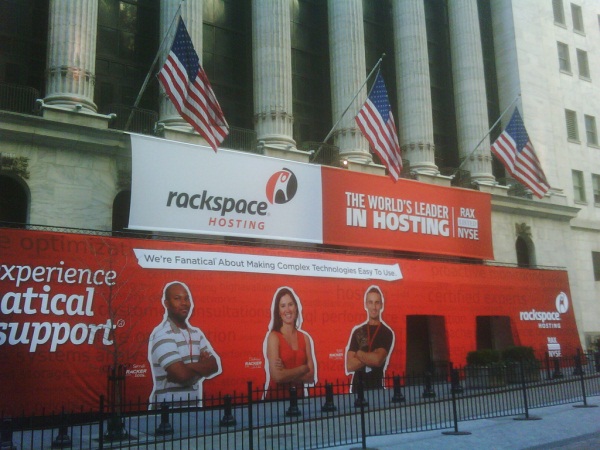Rackspace has become the first vendor to deliver on the promise of true cloud-computing portability for businesses with Wednesday’s launch of the first commercial cloud service using OpenStack cloud technology.
 The news specifically announces that from this point forward, all new Rackspace Cloud customers using cloud services will have their cloud hosted on OpenStack technology.
The news specifically announces that from this point forward, all new Rackspace Cloud customers using cloud services will have their cloud hosted on OpenStack technology.
Techies hear a lot of hype about OpenStack these days. The open source cloud project that was kicked off by Rackspace and NASA in 2010 has a lot going for it, including practically a bazillion commercial vendors throwing resources into it, including Red Hat, HP and SUSE, which are basing their respective cloud strategies on OpenStack.
Why It Matters
That Rackspace, one of the founders of this project and current parent company of the OpenStack subsidiary until the OpenStack Foundation is officially launched, has made this move is no big surprise. It’s their baby, after all. But the move is significant because it will provide actual portability for cloud users – a feature that’s notably lacking in the cloud ecosystem.
It’s been heavily touted that OpenStack is open source, which is all well and good, because it delivers that warm-puppy feeling that says that by using open source code, you are a smart IT manager who loves penguins.
A Compatibility Reality
In reality, it also means that any applications you have running on your servers can finally be used on a private cloud, on Rackspace’s cloud, or any other OpenStack-compatible cloud, such as the ones that will be eventually offered by HP, Red Hat, or SUSE.
Contrast this with the Amazon Web Service Elastic Cloud Computing (AWS EC2) and the Google Cloud Platform, where your data and apps will be hosted and there they will stay – unless you go through the headache of migrating your apps away from EC2 or Google.
AWS and Google don’t really buy into hosting a cloud on your own hardware, though even after arguing against it in 2010, Amazon later started working with partners like Eucalyptus to enable migration of workloads from private clouds to the AWS cloud and back again.
Public vs. Private Clouds
There’s a big difference, though, between migrating workloads and actually hosting the cloud software natively within your own datacenter. That’s why a lot of companies, fearful of the instability and potential insecurity of the public cloud, are very keen on private clouds.
Rackspace is well aware that it is basically inviting customers to install their cloud software and run it wherever they want. That is, after all, one of the usual consequences of using an open source project.
“We are not a company that wanted to hold a customer hostage,” John Engates, Rackspace CTO told ReadWriteWeb. “We want to offer customers better service and support.”
If that sounds vaguely familiar, it should: it’s nearly the same motto used by every commercial Linux vendor. OpenStack, like Linux, is free to use and modify, so commercial vendors like Rackspace are adopting a similar service-and-support revenue model for the cloud platform.
Ultimately, Rackspace is hoping that OpenStack will prove to be as disruptive to cloud computing as Linux was to servers and mobility. That’s a good bet to make, and one that could make Rackspace more than just another cloud vendor.
Via: RWW












